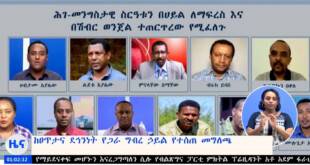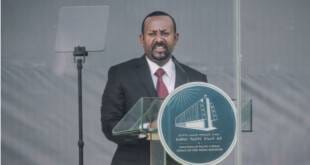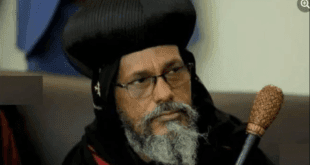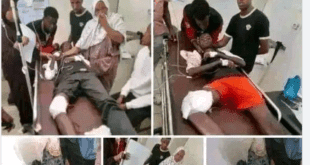http://www.bbc.com/news/world-africa-37716653
The Ethiopian authorities have detained 1,600 people as they try to boost security under the state of emergency, a government minister has told the BBC.
A statement, quoted by state-affiliated FBC website, lists arrests in the Oromia and Amhara regions, which have recently seen massive demonstrations.
This is in addition to Monday’s arrests of 1,000 people near the capital.
A six-month state of emergency has been declared in the face of a wave of unprecedented anti-government protests.
Under the emergency measures, people can be detained without an arrest warrant for the duration of the state of emergency.
- Africa Live: Updates on this and other news stories
- Seven things you can’t now do in Ethiopia
- Are Ethiopian protests a game changer?
- What is behind wave of protests?
FBC reports that the arrests took place in at least five places, including in Shashamene, 250km (155 miles) south of the capital, Addis Ababa, where 450 people were detained.
It describes all those arrested as “suspects in the recent violence” and adds that a large number of looted weapons have also been handed over.
There is no mention as to where the people are being held.
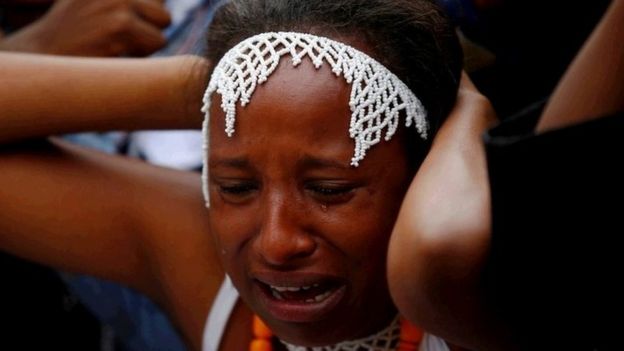 Image copyrightREUTERS
Image copyrightREUTERS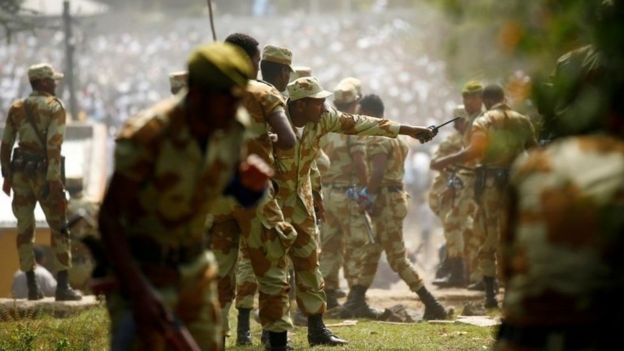 Image copyrightREUTERS
Image copyrightREUTERSRights groups say that at least 500 people have died during the anti-government protests over the last 11 months as a result of clashes with security forces.
Prime Minister Hailemariam Desalegn said last week that could be an accurate estimate, but blamed “anti-peace forces” for the trouble.
Activists have targeted commercial property, including some foreign-owned businesses.
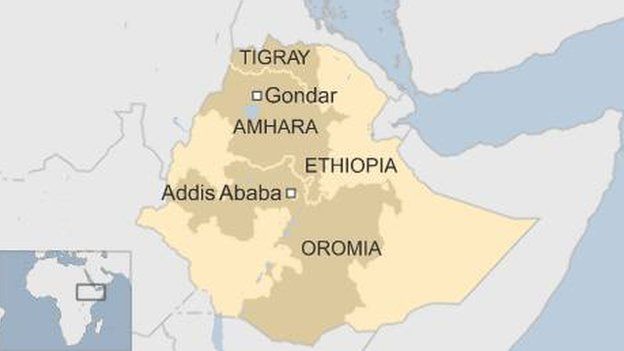
The recent wave of demonstrations began in Oromia last November with people there protesting against a plan to expand Addis Ababa into their region.
That plan has since been dropped, but the protests have continued.
There have also been demonstrations in the country’s Amhara region.
The state of emergency was declared on 9 October a week after at least 55 people died in a stampede during an Oromo religious festival which turned into a protest.
Activists blamed the security forces for causing the panic, but the government said protesters in the crowd were responsible.

